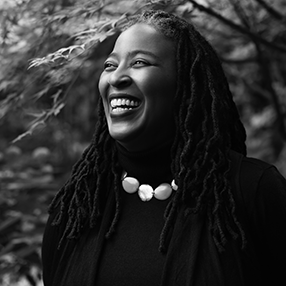Because it looked hotter that way
we let our hair down. It wasn't so much that we worried about what people thought or about keeping it real but that we knew this was our moment. We knew we'd blow our cool sooner or later. Probably sooner. Probably even before we got too far out of Westmont High and had kids of our own who left home wearing clothes we didn't think belonged in school. Like Mrs. C. whose nearly unrecognizably pretty senior photo we passed every day on the way to Gym, we'd get old. Or like Mr. Lurk who told us all the time how it's never too late to throw a Hail Mary like he did his junior year and how we could win everything for the team and hear the band strike up a tune so the cheer squad could sing our name, too. Straight out of a Hallmark movie, Mr. Lurk's hero turned teacher story. We had heard it a million times. Sometimes he'd ask us to sing with him, T-O-N-Y-L-U-R-K Tony Tony Lurk Lurk Lurk. Sin ironia, con sentimiento, por favor, and then we would get back to our Spanish lessons, opening our thin textbooks, until the bell rang and we went on to the cotton gin in History. Really, this had nothing to do with being cool. We only wanted to have a moment to ourselves, a moment before Jazz Band and after Gym when we could look in the mirror and like it. June and Tiffany and Janet all told me I looked pretty. We took turns saying nice things, though we might just as likely say, Die and go to hell. Beauty or hell. No difference. The bell would ring soon. With thanks to "We Real Cool" by Gwendolyn Brooks
Copyright © 2014 by Camille Dungy. Used with permission of the author. This poem appeared in Poem-A-Day on January 14, 2014. Browse the Poem-A-Day archive.
“I find that received forms can connect me to new inspiration. This poem is a ‘Golden Shovel.’ The acrostic form, popularized by Terrance Hayes, uses each word of ‘We Real Cool’ by Gwendolyn Brooks as the last word of each line. Coming up with something to do with ‘lurk’ and with ‘sin’ and with ‘gin’ pushed my writing process in an unexpected direction. For me, writing in received forms also highlights my connection to a community of writers, living and dead. Every time I write a sonnet, for instance, I am in the company of other poets who have written their own sonnets. This make the solitary art of writing far less lonely.”
—Camille Dungy

